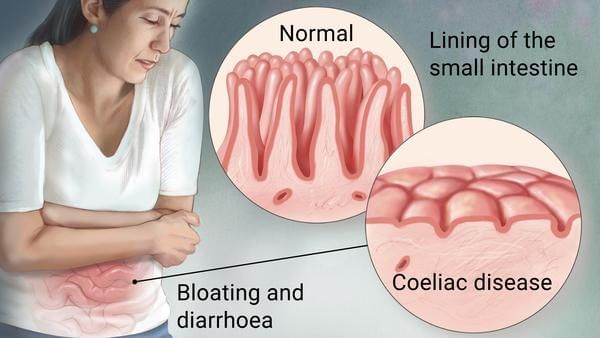Get the App
For Doctors
Login/Sign-up
Last Updated: Jan 10, 2023
BookMark
Report
Celiac Disease And Diet
Celiac disease
Celiac disease (gluten-sensitive enteropathy), sometimes called sprue or coeliac, is an immune reaction to eating gluten, a protein found in wheat, barley and rye.
If you have celiac disease, eating gluten triggers an immune response in your small intestine. Over time, this reaction damages your small intestine's lining and prevents absorption of some nutrients (malabsorption). The intestinal damage often causes diarrhea, fatigue, weight loss, bloating and anemia, and can lead to serious complications cutting out gluten from diet and including healthy and delicious foods that are naturally gluten-free may help to improve its complications.
Foods such as meat, fish, fruits, vegetables, rice, and potatoes without additives or seasonings do not contain gluten and are part of a well-balanced diet.
You can eat potato, rice, soy, amaranth, quinoa, buckwheat, or bean flour instead of wheat flour.
You can eat gluten-free types of bread or pasta
Avoiding foods with gluten is critical in treating celiac disease. Removing gluten from your diet will improve symptoms, heal damage to your small intestine, and prevent further damage over time.



+1.svg)
